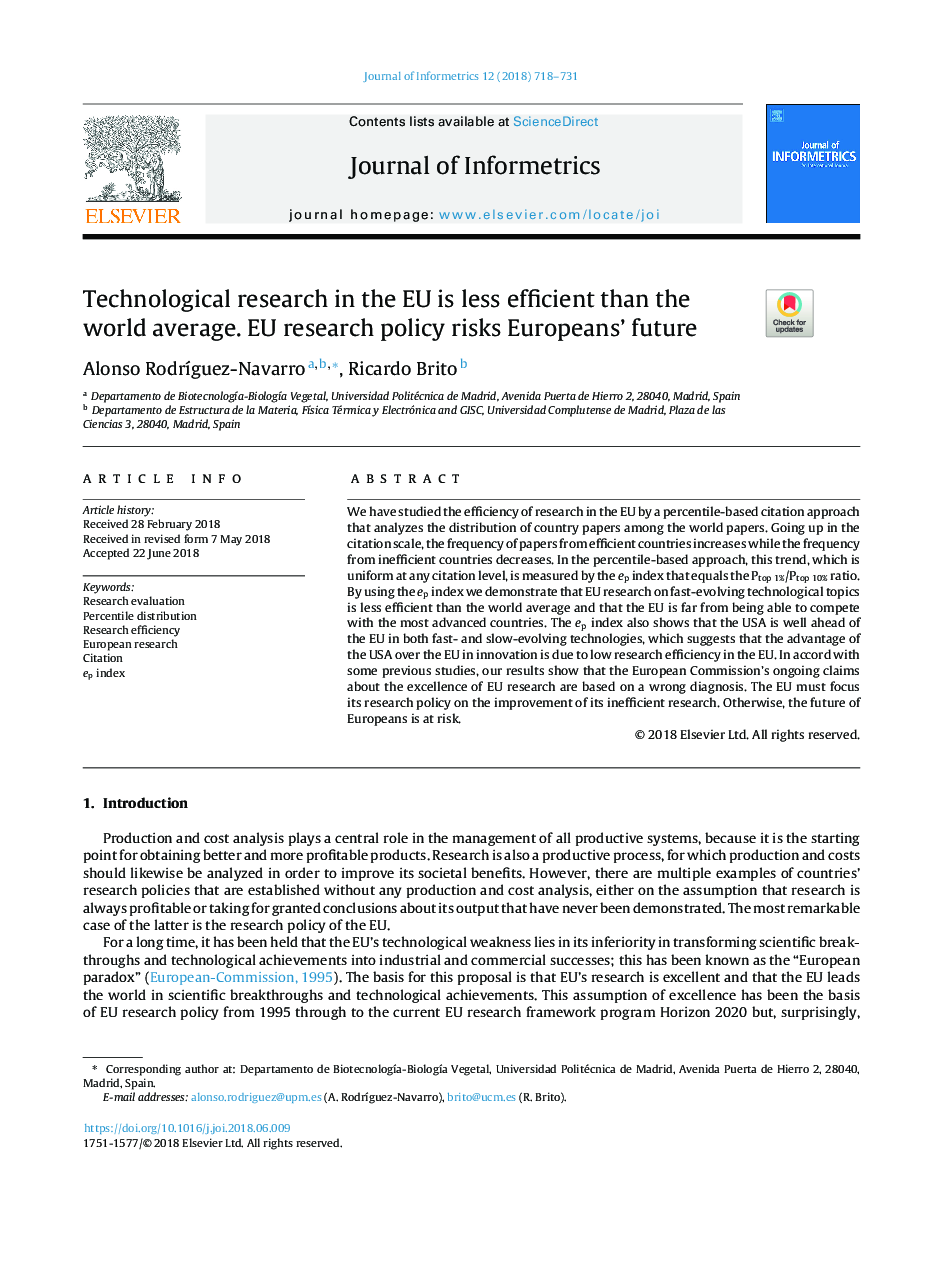| Article ID | Journal | Published Year | Pages | File Type |
|---|---|---|---|---|
| 6933990 | Journal of Informetrics | 2018 | 14 Pages |
Abstract
We have studied the efficiency of research in the EU by a percentile-based citation approach that analyzes the distribution of country papers among the world papers. Going up in the citation scale, the frequency of papers from efficient countries increases while the frequency from inefficient countries decreases. In the percentile-based approach, this trend, which is uniform at any citation level, is measured by the ep index that equals the Ptop 1%/Ptop 10% ratio. By using the ep index we demonstrate that EU research on fast-evolving technological topics is less efficient than the world average and that the EU is far from being able to compete with the most advanced countries. The ep index also shows that the USA is well ahead of the EU in both fast- and slow-evolving technologies, which suggests that the advantage of the USA over the EU in innovation is due to low research efficiency in the EU. In accord with some previous studies, our results show that the European Commission's ongoing claims about the excellence of EU research are based on a wrong diagnosis. The EU must focus its research policy on the improvement of its inefficient research. Otherwise, the future of Europeans is at risk.
Related Topics
Physical Sciences and Engineering
Computer Science
Computer Science Applications
Authors
Alonso RodrÃguez-Navarro, Ricardo Brito,
